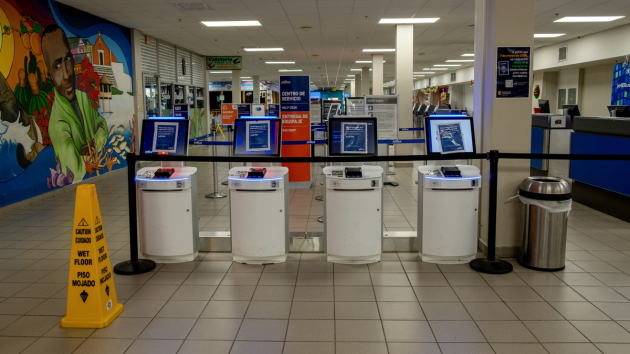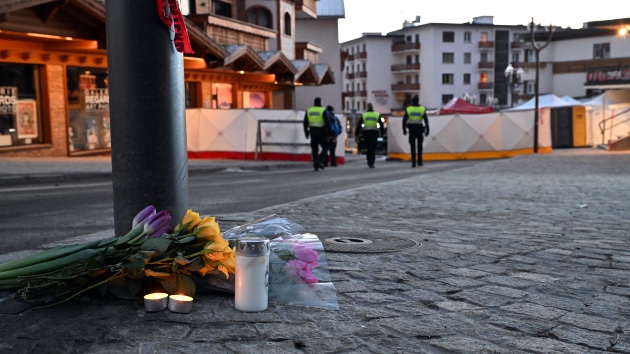UN General Assembly President Dennis Francis lays out the world’s biggest challenges
Written by ABC Audio All Rights Reserved on August 4, 2024

(NEW YORK) — UN General Assembly President Dennis Francis sat down with ABC News’ Linsey Davis to talk about the dangers to global stability, from conflicts to climate change.
Since 1945, the United Nations has addressed issues that transcend borders, with the world’s problems being debated at the General Assembly Building in New York.
Francis, a diplomat from the Caribbean nation of Trinidad and Tobago, has served as his country’s permanent representative to the United Nations since 2021. He was elected to serve as the UN General Assembly’s 78th president in 2023.
ABC News talked to Francis at the General Assembly Building’s iconic hall about Israel and Palestine, Ukraine and Russia, climate change, South Sudan and his message to the next president of the United States.
ABC NEWS: Every president probably has had their own tumult.
FRANCIS: Yes.
ABC NEWS: But it just feels like on your watch, it’s especially busy. But do you feel that?
FRANCIS: Yes, I do. Folks who have been here for quite some time say they’ve never really seen it quite like this before. So many challenges emerging at the same time; peace and stability is under increased duress. I think there are 55 conflict situations in the world. 55.
ABC NEWS: The UN Security Council approved a ceasefire plan that was backed by the United States. And in the meantime, we’ve seen no change from Hamas or Israel. Does the Security Council have sufficient power?
FRANCIS: The question is power over whom? As critical as Hamas is as a player in the Middle East crisis, Hamas is not a state. The General Assembly, for example, had called long ago, in October of 2023, for a complete ceasefire in Gaza. We cannot police the world. The UN doesn’t have a police force. The UN speaks and tries to change behavior through its positions and principles, its values.
I would like to see, and I think the only one that is really credible, a two-state solution. Where Israel and the Palestinians live side by side in peace and security.
We’ve had wars in the Middle East, between the two sides, repeatedly. Are we going to continue this cycle of death, degradation, pain, suffering indefinitely?
ABC NEWS: UN-backed groups believe that maybe as many as 500,000 Palestinians are on the verge of famine. Do you think enough is being done to provide relief and aid to the Palestinians?
FRANCIS: We, as the UN, have a concern that more can and ought to be done. We’ve watched the people of Palestine suffer in the most heartrending way. And the hope is that those who have the capacity and the power to make a difference, in terms of the delivery of aid and support to those people, will step up and do the honorable thing, consistent with the requirements of international human rights and humanitarian law.
ABC NEWS: You mentioned that there are currently 55 conflicts going on globally.
FRANCIS: Yes.
ABC NEWS: Of course, top of mind: the war in Ukraine, which is now in excess of two years. What do you see as the likely outcome there and the responsibility of the UN?
FRANCIS: What really needs to happen is that the Russian forces need to pull back and remove themselves from the territory of Ukraine. That is the only credible outcome insofar as we at the United Nations are concerned.
ABC NEWS: Do you feel that Russia should have a permanent spot on the UN Security Council with veto power?
FRANCIS: That’s not a decision for me. That’s a decision for the membership of the United Nations.
ABC NEWS: But if it were up to you?
FRANCIS: It isn’t up to me because the president does not have those powers
ABC NEWS: I know you recently returned from Namibia. Namibia and Africa, in general, both extremely vulnerable to climate change.
FRANCIS: Yes.
ABC NEWS: And I’m wondering if you are concerned, with regard to the UN secretary general has described this as a highway to hell, that this is a moment of truth.
FRANCIS: I normally wear a pin, and for some reason today I forgot it. It’s a 1.5 degree pin. That’s the temperature at which we need to keep the increase in global temperature above pre-industrial levels. That is important, because for a number of countries in the global south, particularly small island developing states, low lying coastal areas, anything above that would be utterly cataclysmic.
ABC NEWS: Let’s talk about South Sudan. There are reports that 25 million people are in need of aid, famine is looming, 8 million people have been displaced from their homes. Do you feel that the world is paying enough attention to the atrocities going on there?
FRANCIS: No.
ABC NEWS: And why do you think that is?
FRANCIS: Insufficient attention has been paid to the conflicts in Africa and, in particular, what’s going on in South Sudan. It is in a very desperate situation. And I would urge, I would urge the international development community to pay greater attention and to be more forthcoming in the context of humanitarian aid. Not just for South Sudan, but there are other places as well, for Somalia, Mali, other places, because human suffering is going on at an alarming rate. And those of us who have the capacity to do something about it need to act.
ABC NEWS: How do you feel that the outcome of America’s presidential election in November will impact the UN?
FRANCIS: The UN does not have a political preference for governments. So whomsoever occupies the Oval Office come November, I’m sure the UN will be in a position to interact with, discuss policy with, and come to decisions that are in the best interests of the world in general.
ABC NEWS: Do you have a message for the future president of the United States?
FRANCIS: Let’s join together and take some bold decisions, bold decisions to begin in earnest to repair some of the problems that are daunting us in the international society – climate change, sea level rise, antimicrobial resistance, artificial intelligence. Ensuring that we harvest the best benefits that can advance science and advance human society without necessarily importing the risks and threats that could unravel the social fabric of society.
Copyright © 2024, ABC Audio. All rights reserved.
 KVSP
KVSP 





